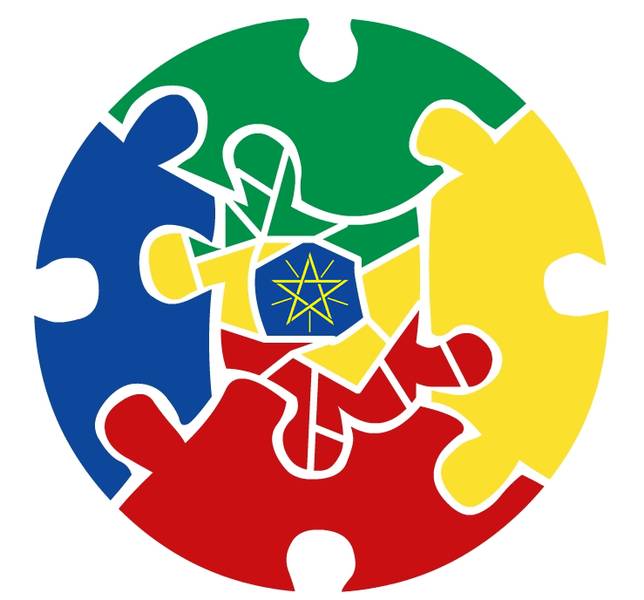A group of lesbian, gay, bisexual and transgender (LGBT) activists in Ethiopia are organizing themselves for what they hope will be action to show solidarity with the gay community in Uganda after their parliament promised to push through an anti-homosexuality bill to further criminalize the gay population.
“We will make certain that they know we are thinking about them and their struggle and make an effort to help however we can,” 24-year-old university student Amina told Bikyamasr.com on Saturday.
She and her fellow independent LGBT activists believe that what is happening in Uganda is a threat to all Africans’, gay or straight, and their freedoms.
“We know that this is the beginning of real attacks on all people and our freedom to live our lives as God created us,” said the lesbian activist.
They are not affiliated with any group, but still hope they can bring the community together in order to advance a better understanding of the LGBT community in Ethiopia, adding that there is too much antagonism between people over being gay.
“It really confuses me how angry people are when they learn I am a lesbian and have a girlfriend. It doesn’t make sense, but we have to help where we can to change people’s attitudes,” she added.
International human rights groups and leaders are calling for the immediate rejection of Uganda’s anti-homosexuality bill, which has been described as a “Christmas gift” to the country by Speaker of Parliament Rebecca Kadaga said.
Kadaga also said the new legislation that outlaws homosexuality and criminalizes the lesbian, gay, bisexual and transgender (LGBT) community, “would pass by the year’s end.”
The International Federation of Human Rights (FIDH) said in a statement that it is “extremely concerned by the speeding up of the voting process” and has called on Uganda to end the crackdown on the LGBT community.
The bill is aimed at putting into the national penal code provisions that would continue to criminalize the “offense of homosexuality.” It was first introduced before Ugandan Parliament in October 2009. At the time, strong mobilization of civil society organizations as well as international governments and institutions enabled to halt the debate and set the bill aside for more than two years.
However, in February this year, it was reintroduced before the Ugandan Parliament in its original version. “With Ms. Kadaga’s recent declarations, the threat of its quick adoption is weighing more than ever over all Ugandan lesbian, gay, bisexual, transgender and intersex (LGBTI) people as well as on human rights organizations, and in particular those working for the protection of LGBTI persons’ rights,” FIDH said in their statement condemning the move.
“If adopted by the Ugandan Parliament, this bill will not only further entrench discrimination and inequality before law, but it will also be a sword of Damocles more dangling over all Ugandan LGBTI citizens’ head as well as over their relatives, friends and more generally those defending their rights. It has to be rejected unconditionally,” said Souhayr Belhassen, FIDH President.
Desmond Tutu has also voiced concerns over the legislation, this week calling on the government to end its crackdown on human rights and dismiss the bill immediately.
FIDH has been strong in its continued attacks over the bill. “Although lack of transparency surrounds the bill’s current content, information gathered by FIDH clearly suggest that no substantial changes have been made to the 2009 text. In the original version, the Bill contained a series of severe provisions. The one which remains of utmost concern is that providing death penalty for “aggravated homosexuality”, in case of “same sex sexual acts” with someone under 18 or with “a person with disability”, of repeated conviction, or if the “offender is a person living with HIV”. Besides, this bill is putting at high risk civil society activists as well as doctors working with LGBTI persons on HIV and in the field of sexual health, and even parents and teachers, as complicity with or failing to “report” those who are, or believed to be LGBTI are severely sanctioned. This Bill further shocks by its extraterritorial jurisdiction provision making any Ugandan citizen living abroad likely to be charged and extradited,” it said.
“This bill and the debate surrounding its reintroduction before Parliament are symptomatic of the more general hindrances to civil and political rights prevailing in Uganda. In a State of Law, authorities are expected to guarantee and protect the rights of citizens, not to persecute and discriminate them. If passed, this bill will seriously jeopardize fundamental freedoms and represent a setback for our country,” denounced Sidiki Kaba, FIDH Honorary President.
**********
*Originally published on Bikyamasr titled “Ethiopia LGBT activists to support Ugandans against anti-gay bill” on Dec. 8, 2012.
“http://www.bikyamasr.com/82757/ethiopia-lgbt-activists-to-support-ugandans-against-anti-gay-bill/
Check the Human Rights archive for related posts.



Cheers Amina. You are a brave activist, the struggle shall be long but victory shall be ours (LGBTI)! Poverty and what ever Ethiopians are in has not been cause by us homosexuals. For those willing to contact me on issues of LGBTI contact me on [email protected]
ከላይ የተሰጠውን አስተያየት በሚገባ የሚቀበለው ጉዳይ ሆኖ በአንድ ጉዳይ ላይ አሁንም ልዩነቱ አለኝ፡፡ ይኼውም ሶዶማዊነት ግለሰባዊ እምነትና ፈቃድ በመሆኑ ላይ ነው፡፡በእርግጥም ይህ ተግባር ሊነቀፍ የሚገባ ተግባር መሆኑ እንዳለ ሆኖ ነገር ግን ተፈጥሯዊ መብት መሆኑ ሊዘነጋ አይገባም፡፡ ከኢትዮጵያዊ ባህል ወግና የሐይማኖት አስተምህሮና እምነት አንጻር በተቀደሰችው ምድር የርኩሰት ተግባር ሲደረግ ማየት የቱን ያህል የህሊና ጉዳት እንደሆነ ሁሉም ሊረዳው የሚችል ሀቅ ነው፡፡
በሌላ ጎኑ ደግሞ ሲታይ የኒዮ ሎብራል የፖለቲካ ዘውግ በሚከተሉ የምዕራቡ አገራት ጉዳዩ የባህሎቻቸው ዓይነተኛ መገላጫ መሆኑ ላይ ነው፡፡ ከዚህ በመነሳት በውጭ የሚገኙ የተጠቀሱ አካት ሽንጣቸውን ገትረው ብሟገቱ ሊፈረድባቸው አይገባም፡፡ ጉዳዩ ተራ የፖለቲካ ትርፍ ማወራረጃ ሊሆን ይችላል፡፡ ወገን እኛ ለእኛ እንሁን ፤ ቻው!!!!!
ዳኒ የብሎግህ ተከታታይ አድናቂ ነኝ፡፡ይንን ዜና ካነበብኩኝ በኋላ ከልብ ነው ያዘንኩት፡፡ኢትዮጵያዊ መልኩን ነብር ዥንጉርጉርነቱን እንዴት ይለውጣል ተብሎ ይታሰባል!! ይገርማል፤ኢትዮጵያዊ ግብረ ሶዶማዊያን ከኡጋንዳ አቻዎቻቸው ጋር ጥምረት መፍጠሩ፤ ሲጀመር ‘’ጌይ’’ መሆን የኛ የኢትዮጵያ ሕዝቦች መገለጫ ባይሆንም ከአገር ቤት ወጥተው በሌላ አገር ለማድረግ ማሰባቸው አገርቱ ምን የተገራ የትልቅ ሐይማኖቶች እና የቱባ ባህል ባለቤት የመሆኗ ዓይነተኛ መገለጫ ነው፡፡ አልፎ አልፎ እኝህን የመሳሰሉ የታሪክ አሽክላዎች በሚፈጽሙት እኩይ ተግባር ማንነታችን አይንኳሰስም፤ ይህ ማለት ታዲያ ሁሉም ዜጋ ይህንን ተግባር ተጸይፎ ለማስተካከል እስከታገለ ድረስ ብቻ ማለቴ መሆኑን ልቡ በሉ፡፡
ታዲያ አንዳንድ የሐይማኖት ዞምቢ መሪዎች ፣የዩኒቨረሲቲ ልህቃን እና የፖለቲካ ሰዎች ‘’ግብረ ሶዶማዊነት የሰው ልጆች የተፈጥሮ መብት ነው፤ስለሆነም ይንን መከልከል የዜጎችን ዴሞክራሲያዊ መብት በቂጡ አለመረዳት በመሆኑ’’ በአገራችን ይህንን የረከሰ ተግባር ለማበረታት ጥረት ለማድረግ ቢሞክሩም ሕዝቡ ከመቀሌ እስከ ሞያሌ እና ከአባ ጂፋር እስከ ሐረር (ክርስቲያን እስላሙ) ድረስ በአንድ ድምፅ ‘’አቁሙ ዋ!!’’ በማለቱ ሳይሳካ ቀርቷል፡፡ እናንተዬ ፤ ፈጣሪ አፈሩን ያቅልልላቸውና የቀድሞ ጠቅላይ ሚ/ር መለስ ዜናው ከጠለቀ ዕውቀታቸው በተባ ብዕራቸው ቁልጭ እና ቅልብጭ ያለች አብዮታዊ ዴምክራሲን አዘጋጅተው አውረሰው አልፈዋል፡፡ ይህንን የፖለቲካ ርዕዮት የምንከተል ሕዝቦች መሆናችን ተዘንግቶ የምዕራቡ ዓለም ሊብራል ዴምክራሲ ከመች ጀምሮ ነው የኛ የሆነው?!
እናም በግብረ ሶዶማዊነት ላይ ተሰማራችሁ በአገር ቤት እና በውጭ አገር ያላችው ወንድሞች እና እህቶች፤- ኢትዮጵያዊነት’ኮ መገለጫው የከበረውን ሕዝብ ባህል እምነት ወግና የፖለቲካ ባህል በመጠበቅ ለሕዝብ ዕድገት እና ብልፅግና ተኑሮ በሕዝብ የሚከብሩበት ቅድስናና ሽልማት እንጂ የነውረኛ ተግባር ማሳያ ኤግዚቢሽን አይደለምና ከድርጊታቸው ተመለሱ እላለሁ፡፡
አየለ ከአዲስ አበባ-ኢትዮጵያ ([email protected])
What a shame Amina and her likes in Ethiopia!! Living in such a poor country where so many people are struggling and dying not having the basic necessities in their life, not having the proper education and awarness of how to fight several types of diseases including AIDS, instead of organizing yourself to bring change to the public and to the basic needs of your fellow citizens, you rather chose to engage yourself in such un natuaral and distructive activity. Perhaps you thought this is a way of civilization b/c you heard its being legalized in some states and countries of the western world. You need to be aware that it has so many opposing parties, groups and individuals within the western world as well for very many reasons. Not everything done in the western culture should be brought and damped in Africa or anywhere else in the world. There are countries who like to keep their own life principle, tradition, beliefs in the higher power etc.
If you orgainize yourself today for this, are you going to tell as that you want to marry your brother or sister or mother and father and ask that to be legal as well b/c you say you have a sexual desire to them? Are we going to hear tomorrow a human and an animal reunited in matrimoney? What an evilness? Where should be the limit to the human endless sexual desire? You’ll probably say its not about sex. You self haters please leave the holy land Ethiopia where the principles of life are taken from the holy Bible and the Holy Kuran.If you chose to assimilate yourself to the confused and self critisizing people who don’t have any principle to follow in their life, then Go away and organize yourself somewhere else. I don’t see your usefulness to Ethiopia or the African society except encouraging the spread of AIDS and other types of disease. It would have a great benefit if you organize yourself to help your people have a better education and train them as to how they can take themselves out of poverty. Don’t create a culture shock among the poor people!! Shame on you Amina!
I wish them well ..they have a long road to travel in Ethiopia and Uganda